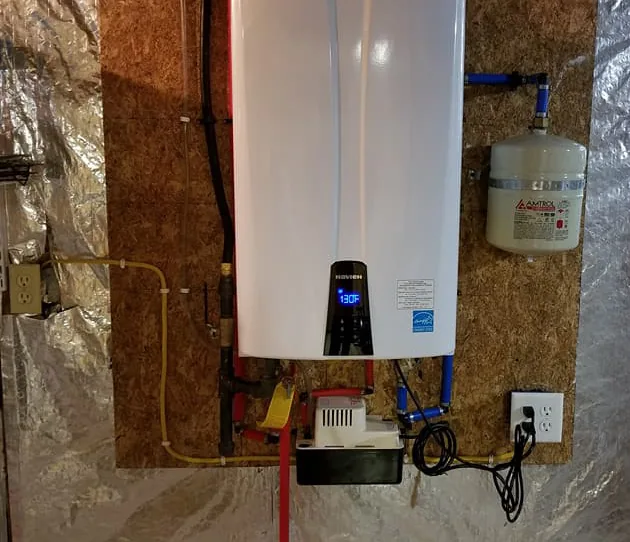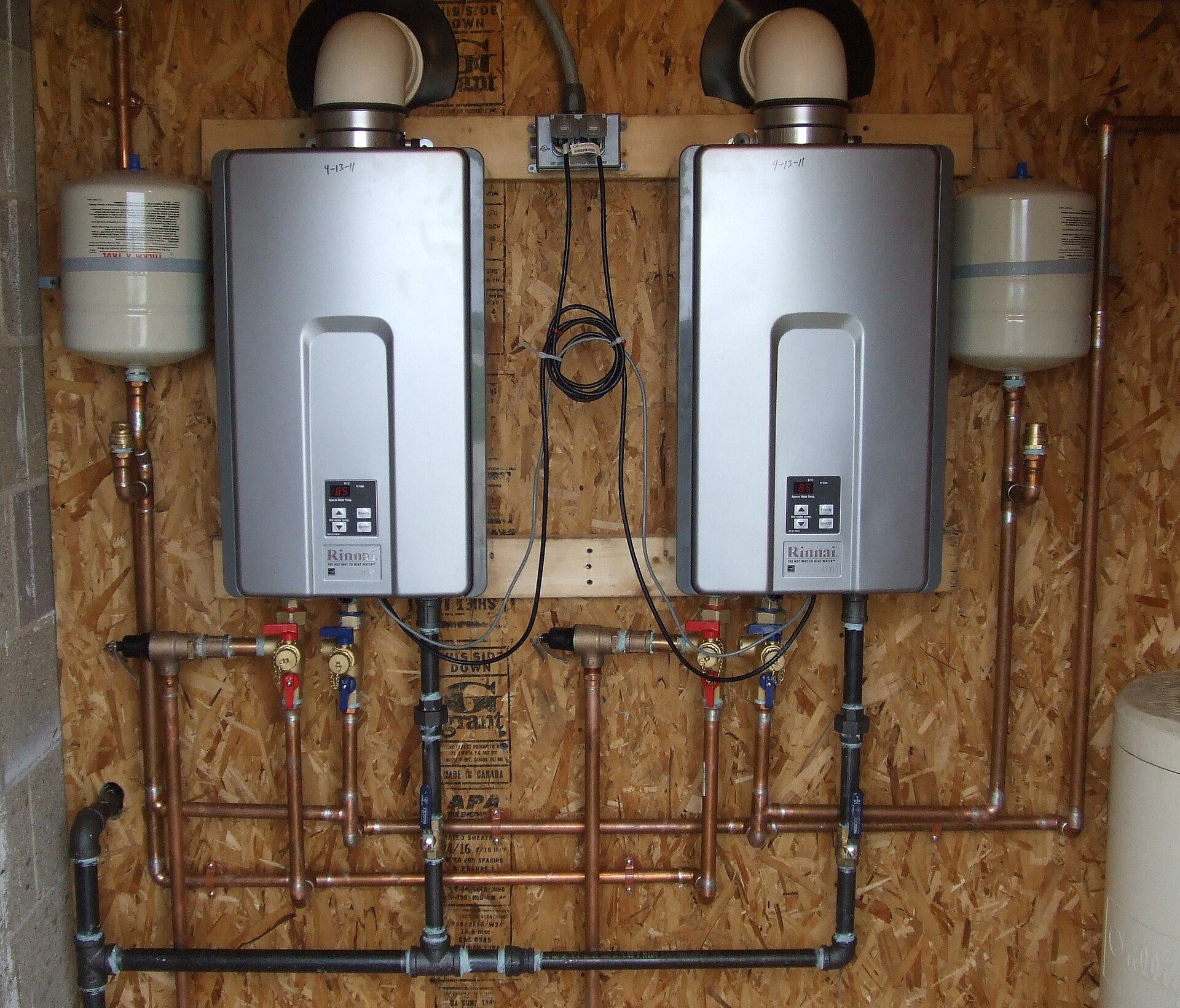Just how do you really feel about Unveiling the Hot Trend: The Benefits of Tankless Water?

In a world where benefit and efficiency preponderate, it's not a surprise that homeowners are regularly looking for smarter ways to handle their home's energy usage and convenience. One technology that has progressively gotten appeal is the tankless hot water heater. Yet just what makes these systems attract attention from the standard tank-based versions most of us grew up with? Allow's dive in and check out the benefits of tankless hot water heater, helping you determine if it's time to make the button in your home.
Intro
Picture this: you enter the shower after a lengthy day, expecting a calming waterfall of hot water, just to be welcomed by icy droplets due to the fact that the last individual used it all up. Noise familiar? Typical hot water heater save a set quantity of hot water, suggesting you're at the mercy of that storage tank's supply. Tankless systems, on the other hand, warmth water on demand. No more going out mid-shower, no more wrestling with schedules just to guarantee hot water is offered.
Recognizing Tankless Water Heaters
What Are Tankless Water Heaters?
Tankless water heaters, often referred to as on-demand or instant hot water heater, give warm water only as it's required. As opposed to saving gallons of pre-heated water, these devices kick into activity the minute you switch on the tap. Water goes through a warmth exchanger, heating up in real-time, implying you get an undisturbed flow of hot water without the requirement for a large container resting idly by.
How Do They Vary from Conventional Systems?
Standard heating units hold a reservoir of warm water, making use of energy to maintain that container at a consistent temperature level. Tankless systems remove the standing supply, minimizing thrown away energy and the bulky footprint of a huge cyndrical tube. Basically, you're updating from a "stockpile" mindset to a "made-to-order" technique.
Common Kinds Of Tankless Systems
Tankless hot water heater usually can be found in 2 varieties: gas and electric. Gas models tend to provide greater flow rates, suitable for bigger homes, while electrical versions typically offer smaller sized homes and are generally less complicated to mount. In addition, some systems are created for point-of-use (offering one fixture) while others can take care of the entire home's warm water requirements.
Key Advantages of Tankless Water Heaters
1. Limitless Warm Water Supply
Ever before had to arrange showers so everybody gets their fair share of warm water? With tankless, that ends up being a distant memory. As long as the heating unit's circulation capability isn't exceeded, you can take back-to-back showers without developing into a popsicle.
2. Energy Performance and Cost Savings
Say goodbye to heating a titan tank's well worth of water and maintaining it warm all the time. Tankless heating systems reduce standby energy losses, which can lower energy expenses. While the first price could be greater, the long-lasting financial savings typically validate the investment.
3. Space-Saving Design
If your home is short on storage space, getting rid of the bulky tank liberates useful area. Tankless systems are small and can often be mounted on wall surfaces, tucked away in edges, or mounted in limited energy wardrobes without monopolizing the whole space.
4. Longer Life expectancy
A well-maintained tankless hot water heater can outlast its tank-based relative. Traditional containers could last 10-15 years, while tankless designs can keep downing along for twenty years or even more, making them a solid investment with time.
5. Improved Water Quality
Keeping water in a container can sometimes result in debris accumulation or a somewhat "off" preference. With tankless systems, fresh water is warmed right away, reducing the opportunities of debris build-up and possibly using cleaner-tasting water.
Factors to consider Prior To Switching
Though the advantages are engaging, it's a good idea to take into consideration a few factors before totally dedicating.
Preliminary Investment Costs
Tankless heaters generally feature a greater upfront cost. Between the device itself and prospective installment adjustments, the initial expense might provide you sticker shock. However bear in mind to see it as a lasting investment.
Setup Needs
Depending upon your home's framework, you might need added electric ability or gas line upgrades. Ensure you comprehend the setup needs and speak with a professional to avoid surprises.
Reviewing Your Home's Water Usage Patterns
If your house all at once utilizes multiple fixtures with high hot water need, see to it the system's flow rate meets your demands. Understanding your usage patterns assists you pick the appropriate dimension and sort of tankless heater.
Maintenance and Treatment Tips
Tankless systems are reasonably reduced upkeep, however they aren't set-it-and-forget-it appliances.
Normal Cleaning and Descaling
Hard water minerals can build up in the warmth exchanger, affecting efficiency. Normal descaling (usually recommended each year) keeps the device running at peak performance.
Yearly Specialist Assessments
A yearly checkup from an expert ensures minor concerns are caught early. They'll examine the unit's efficiency, seek leaks, and aid keep optimum effectiveness.
Making Sure Proper Ventilation
For gas designs, correct air flow is necessary to safely remove exhaust gases. See to it airing vent systems are clean and properly set up to avoid any potential safety threats.
Contrasting Different Brands and Versions
Not all tankless hot water heater are produced equal.
Researching Dependable Producers
Try to find credible brand names with a history of generating quality units. A trustworthy maker frequently offers far better customer support and longer guarantees.
Reading Reviews and Individual Comments
User reviews and feedback from next-door neighbors or friends who have actually gone tankless can supply valuable understandings. Sometimes, real-life experiences can be a lot more informing than marketing pamphlets.
Installation: DIY or Expert?
While some home owners relish dealing with jobs themselves, tankless installation might not be the very best time to break out the toolbox.
Advantages and disadvantages of Do It Yourself Installation
A DIY install could conserve cash, yet it includes dangers. Incorrect installation can lead to inadequacy or safety issues. If you're handy and have experience, it could be viable-- yet proceed with caution.
When to Call a Specialist Plumbing
For most, calling a pro ensures everything's done appropriately. A professional plumber understands local codes, sizing demands, and venting criteria, minimizing the risk of problems.
Optimizing Effectiveness
You've invested in a tankless device-- currently optimize its efficiency.
Optimal Temperature Setups
The majority of people set their systems in between 120-140 F. Adjusting the temperature can improve comfort and cost savings. Experiment to locate a pleasant place that doesn't squander energy.
Pairing with Low-Flow Fixtures
Intend to extend your system's capabilities? Think about setting up low-flow showerheads and taps. They minimize water use, allowing your tankless system to provide a steady stream of hot water without stressing.
Ecological Impact
Tankless hot water heater align with greener living objectives.
Minimized Carbon Footprint
By using much less energy and only home heating water as required, tankless systems can lower your home's carbon impact, decreasing your ecological impact.
Saving Natural Resources
Less energy intake and much less wasted hot water equate into fewer natural deposits being made use of, an environmental win-win.
Who Benefits Most from Tankless Heating units?
The appeal of tankless heaters is that they can suit a variety of households.
Huge Family Members vs. Solitary Passengers
Big households may like the limitless warm water supply, while single residents value the power cost savings from not heating a whole tank for simply one person's early morning shower.
House Owners with Restricted Space
If your home is short on square video, losing the bulky storage tank frees up area for various other basics-- or possibly simply more breathing space.
Eco-Conscious Consumers
Going tankless aligns with environmentally friendly values, guaranteeing you're not squandering power or resources.
Future Trends in Tankless Water Heaters
The world of home appliances is ever-evolving, and tankless hot water heater are no exception.
Smart Home Integration
Envision readjusting your water heater's temperature using an application or receiving upkeep notifies on your phone. As clever home technology breakthroughs, we'll see even more connectivity and comfort.
Developments in Modern technology
R&D is regularly boosting heat exchangers, making systems extra efficient and resilient. Future models may be also quieter, more compact, and much better fit for differing climates.
Conclusion
Selecting a tankless water heater is more than just upgrading your home's warm water system; it's purchasing long-lasting convenience, energy effectiveness, and a greener lifestyle. By considering your household's water usage, bearing in mind installment needs, and committing to normal maintenance, you can delight in a constant stream of hot water without the luggage of a bulky storage tank. As technology develops, you can look forward to even smarter, more efficient tankless options that not just make your life easier but additionally profit the earth.
Six Benefits of a Tankless Hot Water Heater
- Continuous hot water. Large families know what a pain it is to hop into the shower and get blasted with cold water. With a tankless hot water heater, this doesn't happen as long as you install the right size tank. Even if you don t have a large family, a tankless hot water heater allows you to use multiple appliances at once without running out of hot water.
- Reduced energy bill. Because tankless heaters are essentially "off" when the water tap is not on, they use less energy overall. In fact, an ENERGY STAR-qualified tankless hot water heater can use 25-40% less energy than a conventional water heater, and save the average family $100 or more annually.
- Longer life. Get more bang for your buck with a greater lifespan. Specifically, conventional hot water heaters last about 10-13 years compared with up to 20 years for a tankless hot water heater.
- Less space. Did you know that tankless hot water heaters can be hung on a wall almost anywhere in your home? Plus, at 28" tall by 20" wide and 10" deep, a tankless hot water heater takes up a lot less space than a conventional hot water heater, which is 60" tall and 24" wide.
- Good for the environment. In addition to reducing the amount of energy used, most propane-fired tankless water heaters are made of recycled materials. Many conventional tanks, on the other hand, go directly to the dump once they've served their purpose.
- High safety ratings. Conventional water heaters are "always on" and thus pose safety risks more often than do tankless heaters, which only operate when warm water is needed.
https://www.rotorooter.com/blog/water-heaters/six-benefits-of-a-tankless-hot-water-heater/

I was shown that report about through a friend on our other domain. Those who enjoyed our page plz consider to share it. Thanks a bunch for your time. Come back soon.
Go Deal Now
Comments on “What Tankless Water Heaters Improve Your Benefits”